“There were relatively few women in public leadership roles,” Bond told the Associated Press in 2005. “So that small subset that becomes prominent in civil rights would tend to be men. But that doesn’t excuse the way some women have just been written out of history.”
While we rightly celebrate Martin Luther King Jr., Malcolm X, and other Black men that helped pave the way, it’s also important to expand history to include amazing women who did, and continue to do, amazing things.
Here are a few of them:
The former UCLA professor rose to prominence in 1969 when she was removed from her position at the university because of her alleged association with the Communist Party. Subsequently, she was placed on the FBI’s Most Wanted List for allegedly providing the weapons used to stage a hostage negotiation for the release of political prisoners. Ultimately, Davis was acquitted, and continued advocating for prison reform as well as other issues.
Davis has been a social activist for over 40 years, working to secure freedom for people around the world. She’s written several books, including an autobiography, a classic on women, race, and class, and a recently released text that connects uprisings in Ferguson and Palestine.
Learn more about Angela Davis by watching the documentary “Free Angela Davis and All Political Prisoners”
Cleaver joined the struggle as a member of the Student Nonviolent Coordinating Committee (SNCC), but has fought for freedom for over 40 years. Currently, she is a senior lecturer and research fellow at Emory University School of Law. Cleaver is at work on her much-anticipated memoir, “Memories of Love and War.”
Get into Kathleen Cleaver by reading “Liberation, Imagination, and the Black Panther Party: A New Look at the Panthers and their Legacy.”
While in Mississippi, Hamer was arrested and tortured by prison guards. Her kidneys were damaged and she left the prison with a limp. Still, the warrior didn’t stop fighting for freedom. Instead, Hamer ran for Congress in 1964 and 1965 and was appointed to the Democratic National Committee of 1968. She also raised awareness about the sexual violence committed against Black women fighting for civil rights by testifying at the Democratic National Convention in August 1964.
Hamer’s legacy will live on forever.
Read “This Little Light of Mine: The Life of Fannie Lou Hamer” or “For Freedom’s Sake: The Life of Fannie Lou Hamer” to learn more about this icon.
The activist also helped to create SNCC and other civil rights organizations. She is often referred to as “Fundi,” a “Swahili word meaning a person who teaches a craft to the next generation,” according to the Ella Baker Center for Human Rights.
Her leadership transformed the world.
“You didn’t see me on television; you didn’t see news stories about me,” she said of the 1960’s. “The kind of role that I tried to play was to pick up pieces or put together pieces out of which I hoped organization might come. My theory is, strong people don’t need strong leaders.”
Right on, Ella.
More of Ella Baker’s amazing story is told in “FUNDI: The Story of Ella Baker.”
In March 1955, then 15-year-old Claudette Colvin was arrested in Montgomery, Alabama for refusing to relinquish her bus seat. She was charged with disturbing the peace, assaulting a police officer, and violating segregation laws. Parks, who was working as a secretary for the local NAACP, began searching for ways to use Colvin’s case to galvanize the upcoming boycott.
She was never catapulted to prominence, like Parks, because the NAACP soon discovered she was pregnant and the father of her unborn child was married to another woman. Colvin isn’t bitter, though.
She told the New York Times in 2009 that the Civil Rights Movement is bigger than one person. “Maybe by telling my story — something I was afraid to do for a long time — kids will have a better understanding about what the Civil Rights Movement was about,” she said.
Read more about Claudette Colvin’s incredible sacrifice in “Claudette Colvin: Twice Toward Justice.”
The first-generation American took those words and ran with them. In 1968, Chisholm became the first African-American Congresswoman, representing Brooklyn in the House of Representatives. She followed this historic act with another one: in 1972, she became the first Black woman to run for president, claiming that no other candidate cared as much about issues plaguing the Black community.
Her run was called the “Chisholm Trail,” according to National Women’s History Museum. Ultimately, she didn’t earn the Democratic nomination, but she earned 151 delegate votes at the convention.
Chisholm — referred to as the “people’s politician” — served in Congress for 14 years. During that time, she introduced over 50 pieces of legislation, co-founded the National Women’s Political Caucus, and served on the Committee on Education and Labor. President Bill Clinton attempted to appoint her as the U.S. Ambassador to Jamaica, but she declined. Though Chisholm died in 2005, her political legacy continues to inspire women, including the one who may just become America’s first female president.
Learn about Shirley Chisholm’s historic presidential run in the PBS documentary “Chisholm ‘72.”
By 1961, Nash became a full-fledged activist. She participated in multiple sit-ins, which led to stints in jail. At one point, she was sentenced to two years in prison for “teaching nonviolent tactics to children in Jackson, Mississippi.” She, too, was a prominent member of SNCC, and coordinated the Freedom Rides to Southern states entrenched in segregation.
Nash is still fighting for freedom. Years ago, she refused to attend the commemoration march to Selma because George W. Bush was present.
“I refused to march because George Bush marched,” Nash told journalist Roland Martin on TV One’s News One Now. “I think the Selma movement was about non-violence and peace and democracy. And George Bush stands for just the opposite: For violence and war and stolen elections, and his administration … had people tortured.”
Welp.
Diane Nash’s role in SNCC is chronicled in “In Struggle: SNCC and the Black Awakening of the 1960s.”
Wells-Barnett deserves far more credit than she receives. She fought for voting rights for women, reported on lynching, and clashed with white feminists on the importance of intersectionality.
In 1889, Wells-Barnett left the education field to pursue writing. She became part-owner of the “Free Speech and Headlight,” an African-American newspaper. There, she reported on the brutality of lynching and advocated for Black women. After leaving Memphis for Chicago, she continued her crusade by publishing “Southern Horrors: Lynch Law in All Its Phases,” an amazing book that should be taught in every history class.
Wells-Barnett was also a passionate advocate for women’s rights. She participated in the 1913 suffrage march and was also a founding member of the NAACP.
Eventually, Wells-Barnett ran for Illinois State Legislature as an independent candidate, but came in third.
Her life’s work will live on forever.
PBS tells Ida B. Wells’ story in the documentary, “Ida B. Wells: A Passionate for Justice.”
Brown also served as editor of the Black Panther Party’s newspaper, “The Black Panther.” She also ran for Oakland City Council, but didn’t win the seat. Her political ambitions didn’t end there. In 2007, Brown ran as the Green Party’s candidate for the presidency.
To learn more about Elaine Brown, read “A Taste of Power: A Black Woman’s Story”
Alongside fellow NCNW member, Height organized Wednesdays in Mississippi, workshops that brought Black and white women together during the height of the Civil Rights Movement to discuss racial issues.
She, alongside Gloria Steinem and Shirley Chisholm, co-founded the National Women’s Political Caucus and worked to put more women in political office.
As a thank you for her service, President Obama awarded Height the Presidential Medal of Freedom in 2009, and called her “the godmother of the civil rights movement and a hero to so many Americans.”
For more information on Dorothy Height, read “Wednesdays in Mississippi: Proper Ladies Working for Radical Change, Freedom Summer 1964”
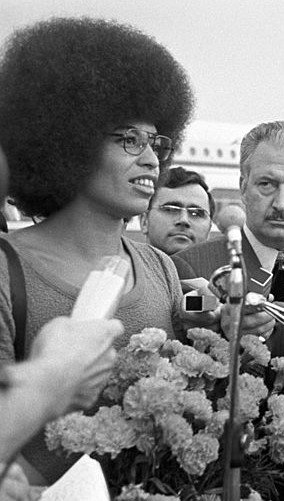
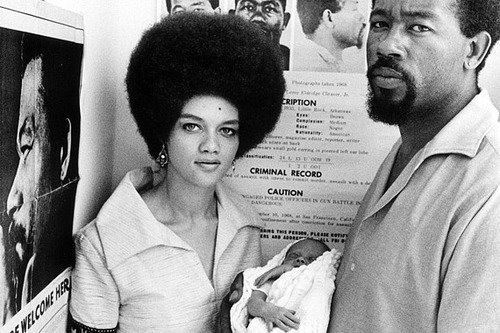
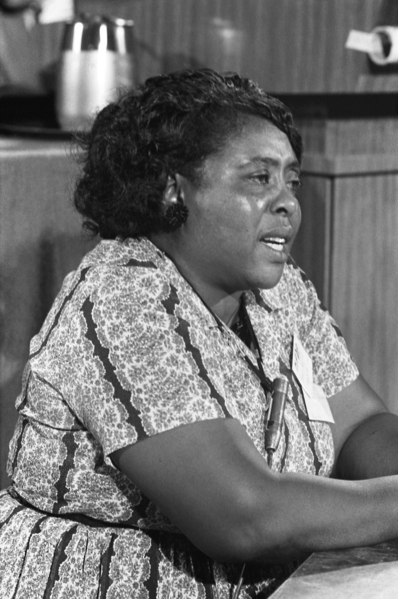
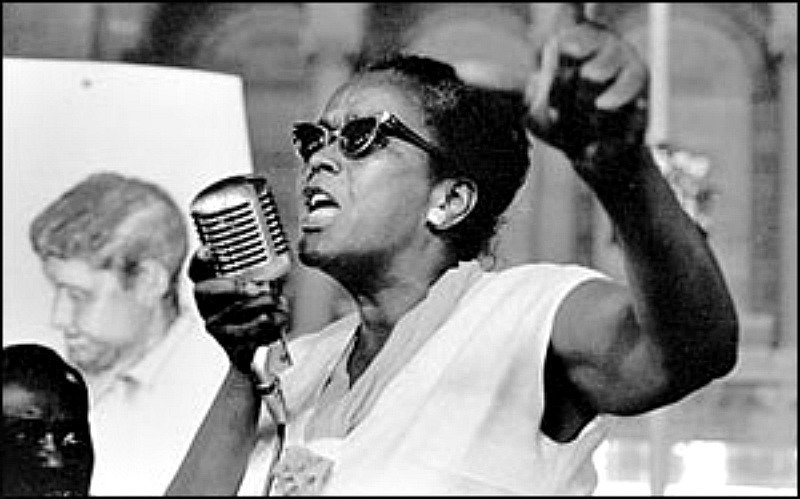
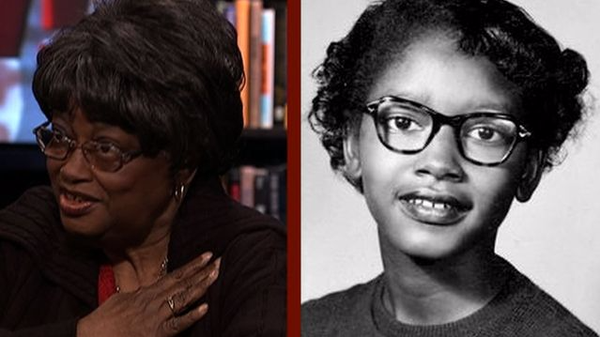
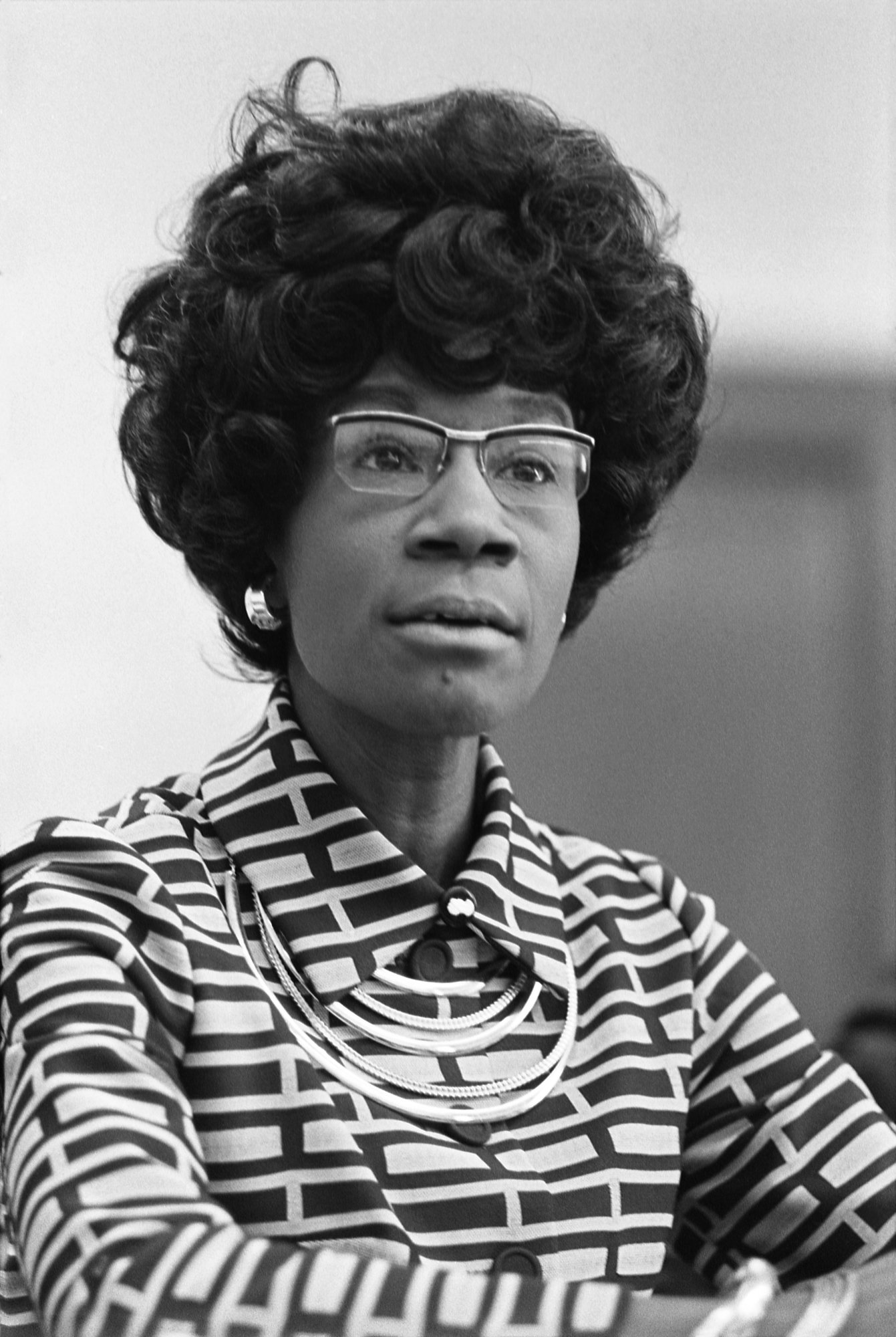
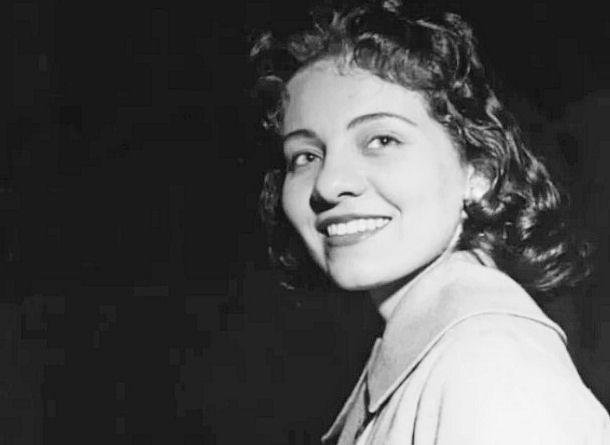
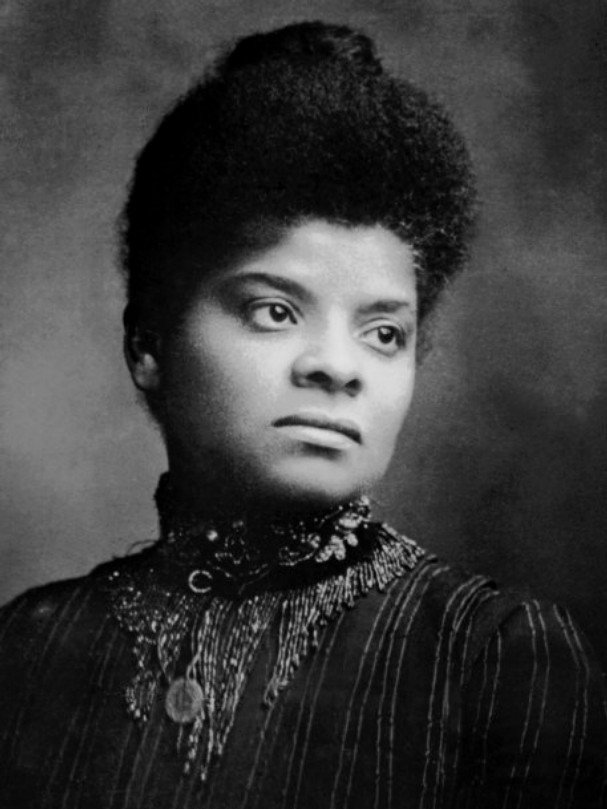
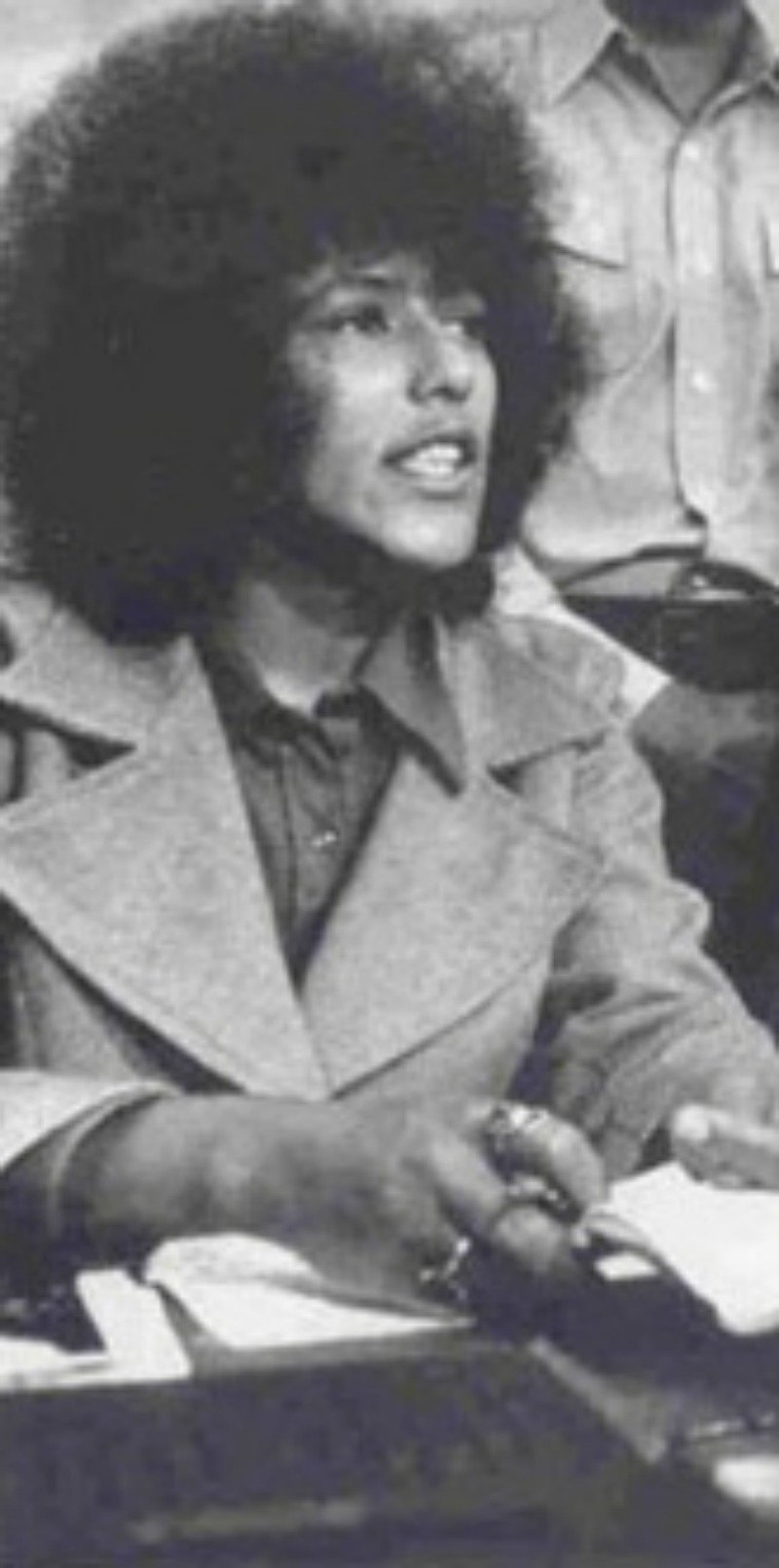
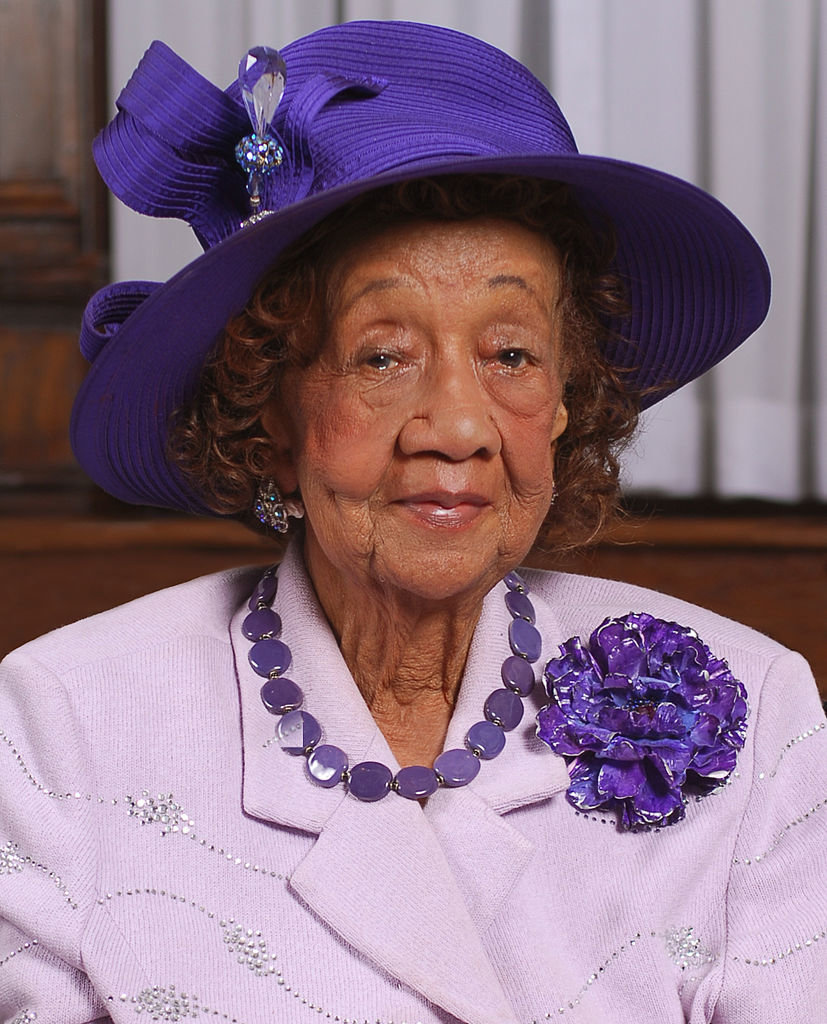

title: “10 Black Women That Changed History” ShowToc: true date: “2024-10-14” author: “Floyd Hall”
“There were relatively few women in public leadership roles,” Bond told the Associated Press in 2005. “So that small subset that becomes prominent in civil rights would tend to be men. But that doesn’t excuse the way some women have just been written out of history.”
While we rightly celebrate Martin Luther King Jr., Malcolm X, and other Black men that helped pave the way, it’s also important to expand history to include amazing women who did, and continue to do, amazing things.
Here are a few of them:
The former UCLA professor rose to prominence in 1969 when she was removed from her position at the university because of her alleged association with the Communist Party. Subsequently, she was placed on the FBI’s Most Wanted List for allegedly providing the weapons used to stage a hostage negotiation for the release of political prisoners. Ultimately, Davis was acquitted, and continued advocating for prison reform as well as other issues.
Davis has been a social activist for over 40 years, working to secure freedom for people around the world. She’s written several books, including an autobiography, a classic on women, race, and class, and a recently released text that connects uprisings in Ferguson and Palestine.
Learn more about Angela Davis by watching the documentary “Free Angela Davis and All Political Prisoners”
Cleaver joined the struggle as a member of the Student Nonviolent Coordinating Committee (SNCC), but has fought for freedom for over 40 years. Currently, she is a senior lecturer and research fellow at Emory University School of Law. Cleaver is at work on her much-anticipated memoir, “Memories of Love and War.”
Get into Kathleen Cleaver by reading “Liberation, Imagination, and the Black Panther Party: A New Look at the Panthers and their Legacy.”
While in Mississippi, Hamer was arrested and tortured by prison guards. Her kidneys were damaged and she left the prison with a limp. Still, the warrior didn’t stop fighting for freedom. Instead, Hamer ran for Congress in 1964 and 1965 and was appointed to the Democratic National Committee of 1968. She also raised awareness about the sexual violence committed against Black women fighting for civil rights by testifying at the Democratic National Convention in August 1964.
Hamer’s legacy will live on forever.
Read “This Little Light of Mine: The Life of Fannie Lou Hamer” or “For Freedom’s Sake: The Life of Fannie Lou Hamer” to learn more about this icon.
The activist also helped to create SNCC and other civil rights organizations. She is often referred to as “Fundi,” a “Swahili word meaning a person who teaches a craft to the next generation,” according to the Ella Baker Center for Human Rights.
Her leadership transformed the world.
“You didn’t see me on television; you didn’t see news stories about me,” she said of the 1960’s. “The kind of role that I tried to play was to pick up pieces or put together pieces out of which I hoped organization might come. My theory is, strong people don’t need strong leaders.”
Right on, Ella.
More of Ella Baker’s amazing story is told in “FUNDI: The Story of Ella Baker.”
In March 1955, then 15-year-old Claudette Colvin was arrested in Montgomery, Alabama for refusing to relinquish her bus seat. She was charged with disturbing the peace, assaulting a police officer, and violating segregation laws. Parks, who was working as a secretary for the local NAACP, began searching for ways to use Colvin’s case to galvanize the upcoming boycott.
She was never catapulted to prominence, like Parks, because the NAACP soon discovered she was pregnant and the father of her unborn child was married to another woman. Colvin isn’t bitter, though.
She told the New York Times in 2009 that the Civil Rights Movement is bigger than one person. “Maybe by telling my story — something I was afraid to do for a long time — kids will have a better understanding about what the Civil Rights Movement was about,” she said.
Read more about Claudette Colvin’s incredible sacrifice in “Claudette Colvin: Twice Toward Justice.”
The first-generation American took those words and ran with them. In 1968, Chisholm became the first African-American Congresswoman, representing Brooklyn in the House of Representatives. She followed this historic act with another one: in 1972, she became the first Black woman to run for president, claiming that no other candidate cared as much about issues plaguing the Black community.
Her run was called the “Chisholm Trail,” according to National Women’s History Museum. Ultimately, she didn’t earn the Democratic nomination, but she earned 151 delegate votes at the convention.
Chisholm — referred to as the “people’s politician” — served in Congress for 14 years. During that time, she introduced over 50 pieces of legislation, co-founded the National Women’s Political Caucus, and served on the Committee on Education and Labor. President Bill Clinton attempted to appoint her as the U.S. Ambassador to Jamaica, but she declined. Though Chisholm died in 2005, her political legacy continues to inspire women, including the one who may just become America’s first female president.
Learn about Shirley Chisholm’s historic presidential run in the PBS documentary “Chisholm ‘72.”
By 1961, Nash became a full-fledged activist. She participated in multiple sit-ins, which led to stints in jail. At one point, she was sentenced to two years in prison for “teaching nonviolent tactics to children in Jackson, Mississippi.” She, too, was a prominent member of SNCC, and coordinated the Freedom Rides to Southern states entrenched in segregation.
Nash is still fighting for freedom. Years ago, she refused to attend the commemoration march to Selma because George W. Bush was present.
“I refused to march because George Bush marched,” Nash told journalist Roland Martin on TV One’s News One Now. “I think the Selma movement was about non-violence and peace and democracy. And George Bush stands for just the opposite: For violence and war and stolen elections, and his administration … had people tortured.”
Welp.
Diane Nash’s role in SNCC is chronicled in “In Struggle: SNCC and the Black Awakening of the 1960s.”
Wells-Barnett deserves far more credit than she receives. She fought for voting rights for women, reported on lynching, and clashed with white feminists on the importance of intersectionality.
In 1889, Wells-Barnett left the education field to pursue writing. She became part-owner of the “Free Speech and Headlight,” an African-American newspaper. There, she reported on the brutality of lynching and advocated for Black women. After leaving Memphis for Chicago, she continued her crusade by publishing “Southern Horrors: Lynch Law in All Its Phases,” an amazing book that should be taught in every history class.
Wells-Barnett was also a passionate advocate for women’s rights. She participated in the 1913 suffrage march and was also a founding member of the NAACP.
Eventually, Wells-Barnett ran for Illinois State Legislature as an independent candidate, but came in third.
Her life’s work will live on forever.
PBS tells Ida B. Wells’ story in the documentary, “Ida B. Wells: A Passionate for Justice.”
Brown also served as editor of the Black Panther Party’s newspaper, “The Black Panther.” She also ran for Oakland City Council, but didn’t win the seat. Her political ambitions didn’t end there. In 2007, Brown ran as the Green Party’s candidate for the presidency.
To learn more about Elaine Brown, read “A Taste of Power: A Black Woman’s Story”
Alongside fellow NCNW member, Height organized Wednesdays in Mississippi, workshops that brought Black and white women together during the height of the Civil Rights Movement to discuss racial issues.
She, alongside Gloria Steinem and Shirley Chisholm, co-founded the National Women’s Political Caucus and worked to put more women in political office.
As a thank you for her service, President Obama awarded Height the Presidential Medal of Freedom in 2009, and called her “the godmother of the civil rights movement and a hero to so many Americans.”
For more information on Dorothy Height, read “Wednesdays in Mississippi: Proper Ladies Working for Radical Change, Freedom Summer 1964”











title: “10 Black Women That Changed History” ShowToc: true date: “2024-10-20” author: “Edgardo Hogue”
“There were relatively few women in public leadership roles,” Bond told the Associated Press in 2005. “So that small subset that becomes prominent in civil rights would tend to be men. But that doesn’t excuse the way some women have just been written out of history.”
While we rightly celebrate Martin Luther King Jr., Malcolm X, and other Black men that helped pave the way, it’s also important to expand history to include amazing women who did, and continue to do, amazing things.
Here are a few of them:
The former UCLA professor rose to prominence in 1969 when she was removed from her position at the university because of her alleged association with the Communist Party. Subsequently, she was placed on the FBI’s Most Wanted List for allegedly providing the weapons used to stage a hostage negotiation for the release of political prisoners. Ultimately, Davis was acquitted, and continued advocating for prison reform as well as other issues.
Davis has been a social activist for over 40 years, working to secure freedom for people around the world. She’s written several books, including an autobiography, a classic on women, race, and class, and a recently released text that connects uprisings in Ferguson and Palestine.
Learn more about Angela Davis by watching the documentary “Free Angela Davis and All Political Prisoners”
Cleaver joined the struggle as a member of the Student Nonviolent Coordinating Committee (SNCC), but has fought for freedom for over 40 years. Currently, she is a senior lecturer and research fellow at Emory University School of Law. Cleaver is at work on her much-anticipated memoir, “Memories of Love and War.”
Get into Kathleen Cleaver by reading “Liberation, Imagination, and the Black Panther Party: A New Look at the Panthers and their Legacy.”
While in Mississippi, Hamer was arrested and tortured by prison guards. Her kidneys were damaged and she left the prison with a limp. Still, the warrior didn’t stop fighting for freedom. Instead, Hamer ran for Congress in 1964 and 1965 and was appointed to the Democratic National Committee of 1968. She also raised awareness about the sexual violence committed against Black women fighting for civil rights by testifying at the Democratic National Convention in August 1964.
Hamer’s legacy will live on forever.
Read “This Little Light of Mine: The Life of Fannie Lou Hamer” or “For Freedom’s Sake: The Life of Fannie Lou Hamer” to learn more about this icon.
The activist also helped to create SNCC and other civil rights organizations. She is often referred to as “Fundi,” a “Swahili word meaning a person who teaches a craft to the next generation,” according to the Ella Baker Center for Human Rights.
Her leadership transformed the world.
“You didn’t see me on television; you didn’t see news stories about me,” she said of the 1960’s. “The kind of role that I tried to play was to pick up pieces or put together pieces out of which I hoped organization might come. My theory is, strong people don’t need strong leaders.”
Right on, Ella.
More of Ella Baker’s amazing story is told in “FUNDI: The Story of Ella Baker.”
In March 1955, then 15-year-old Claudette Colvin was arrested in Montgomery, Alabama for refusing to relinquish her bus seat. She was charged with disturbing the peace, assaulting a police officer, and violating segregation laws. Parks, who was working as a secretary for the local NAACP, began searching for ways to use Colvin’s case to galvanize the upcoming boycott.
She was never catapulted to prominence, like Parks, because the NAACP soon discovered she was pregnant and the father of her unborn child was married to another woman. Colvin isn’t bitter, though.
She told the New York Times in 2009 that the Civil Rights Movement is bigger than one person. “Maybe by telling my story — something I was afraid to do for a long time — kids will have a better understanding about what the Civil Rights Movement was about,” she said.
Read more about Claudette Colvin’s incredible sacrifice in “Claudette Colvin: Twice Toward Justice.”
The first-generation American took those words and ran with them. In 1968, Chisholm became the first African-American Congresswoman, representing Brooklyn in the House of Representatives. She followed this historic act with another one: in 1972, she became the first Black woman to run for president, claiming that no other candidate cared as much about issues plaguing the Black community.
Her run was called the “Chisholm Trail,” according to National Women’s History Museum. Ultimately, she didn’t earn the Democratic nomination, but she earned 151 delegate votes at the convention.
Chisholm — referred to as the “people’s politician” — served in Congress for 14 years. During that time, she introduced over 50 pieces of legislation, co-founded the National Women’s Political Caucus, and served on the Committee on Education and Labor. President Bill Clinton attempted to appoint her as the U.S. Ambassador to Jamaica, but she declined. Though Chisholm died in 2005, her political legacy continues to inspire women, including the one who may just become America’s first female president.
Learn about Shirley Chisholm’s historic presidential run in the PBS documentary “Chisholm ‘72.”
By 1961, Nash became a full-fledged activist. She participated in multiple sit-ins, which led to stints in jail. At one point, she was sentenced to two years in prison for “teaching nonviolent tactics to children in Jackson, Mississippi.” She, too, was a prominent member of SNCC, and coordinated the Freedom Rides to Southern states entrenched in segregation.
Nash is still fighting for freedom. Years ago, she refused to attend the commemoration march to Selma because George W. Bush was present.
“I refused to march because George Bush marched,” Nash told journalist Roland Martin on TV One’s News One Now. “I think the Selma movement was about non-violence and peace and democracy. And George Bush stands for just the opposite: For violence and war and stolen elections, and his administration … had people tortured.”
Welp.
Diane Nash’s role in SNCC is chronicled in “In Struggle: SNCC and the Black Awakening of the 1960s.”
Wells-Barnett deserves far more credit than she receives. She fought for voting rights for women, reported on lynching, and clashed with white feminists on the importance of intersectionality.
In 1889, Wells-Barnett left the education field to pursue writing. She became part-owner of the “Free Speech and Headlight,” an African-American newspaper. There, she reported on the brutality of lynching and advocated for Black women. After leaving Memphis for Chicago, she continued her crusade by publishing “Southern Horrors: Lynch Law in All Its Phases,” an amazing book that should be taught in every history class.
Wells-Barnett was also a passionate advocate for women’s rights. She participated in the 1913 suffrage march and was also a founding member of the NAACP.
Eventually, Wells-Barnett ran for Illinois State Legislature as an independent candidate, but came in third.
Her life’s work will live on forever.
PBS tells Ida B. Wells’ story in the documentary, “Ida B. Wells: A Passionate for Justice.”
Brown also served as editor of the Black Panther Party’s newspaper, “The Black Panther.” She also ran for Oakland City Council, but didn’t win the seat. Her political ambitions didn’t end there. In 2007, Brown ran as the Green Party’s candidate for the presidency.
To learn more about Elaine Brown, read “A Taste of Power: A Black Woman’s Story”
Alongside fellow NCNW member, Height organized Wednesdays in Mississippi, workshops that brought Black and white women together during the height of the Civil Rights Movement to discuss racial issues.
She, alongside Gloria Steinem and Shirley Chisholm, co-founded the National Women’s Political Caucus and worked to put more women in political office.
As a thank you for her service, President Obama awarded Height the Presidential Medal of Freedom in 2009, and called her “the godmother of the civil rights movement and a hero to so many Americans.”
For more information on Dorothy Height, read “Wednesdays in Mississippi: Proper Ladies Working for Radical Change, Freedom Summer 1964”











title: “10 Black Women That Changed History” ShowToc: true date: “2024-08-28” author: “Karen Kleist”
“There were relatively few women in public leadership roles,” Bond told the Associated Press in 2005. “So that small subset that becomes prominent in civil rights would tend to be men. But that doesn’t excuse the way some women have just been written out of history.”
While we rightly celebrate Martin Luther King Jr., Malcolm X, and other Black men that helped pave the way, it’s also important to expand history to include amazing women who did, and continue to do, amazing things.
Here are a few of them:
The former UCLA professor rose to prominence in 1969 when she was removed from her position at the university because of her alleged association with the Communist Party. Subsequently, she was placed on the FBI’s Most Wanted List for allegedly providing the weapons used to stage a hostage negotiation for the release of political prisoners. Ultimately, Davis was acquitted, and continued advocating for prison reform as well as other issues.
Davis has been a social activist for over 40 years, working to secure freedom for people around the world. She’s written several books, including an autobiography, a classic on women, race, and class, and a recently released text that connects uprisings in Ferguson and Palestine.
Learn more about Angela Davis by watching the documentary “Free Angela Davis and All Political Prisoners”
Cleaver joined the struggle as a member of the Student Nonviolent Coordinating Committee (SNCC), but has fought for freedom for over 40 years. Currently, she is a senior lecturer and research fellow at Emory University School of Law. Cleaver is at work on her much-anticipated memoir, “Memories of Love and War.”
Get into Kathleen Cleaver by reading “Liberation, Imagination, and the Black Panther Party: A New Look at the Panthers and their Legacy.”
While in Mississippi, Hamer was arrested and tortured by prison guards. Her kidneys were damaged and she left the prison with a limp. Still, the warrior didn’t stop fighting for freedom. Instead, Hamer ran for Congress in 1964 and 1965 and was appointed to the Democratic National Committee of 1968. She also raised awareness about the sexual violence committed against Black women fighting for civil rights by testifying at the Democratic National Convention in August 1964.
Hamer’s legacy will live on forever.
Read “This Little Light of Mine: The Life of Fannie Lou Hamer” or “For Freedom’s Sake: The Life of Fannie Lou Hamer” to learn more about this icon.
The activist also helped to create SNCC and other civil rights organizations. She is often referred to as “Fundi,” a “Swahili word meaning a person who teaches a craft to the next generation,” according to the Ella Baker Center for Human Rights.
Her leadership transformed the world.
“You didn’t see me on television; you didn’t see news stories about me,” she said of the 1960’s. “The kind of role that I tried to play was to pick up pieces or put together pieces out of which I hoped organization might come. My theory is, strong people don’t need strong leaders.”
Right on, Ella.
More of Ella Baker’s amazing story is told in “FUNDI: The Story of Ella Baker.”
In March 1955, then 15-year-old Claudette Colvin was arrested in Montgomery, Alabama for refusing to relinquish her bus seat. She was charged with disturbing the peace, assaulting a police officer, and violating segregation laws. Parks, who was working as a secretary for the local NAACP, began searching for ways to use Colvin’s case to galvanize the upcoming boycott.
She was never catapulted to prominence, like Parks, because the NAACP soon discovered she was pregnant and the father of her unborn child was married to another woman. Colvin isn’t bitter, though.
She told the New York Times in 2009 that the Civil Rights Movement is bigger than one person. “Maybe by telling my story — something I was afraid to do for a long time — kids will have a better understanding about what the Civil Rights Movement was about,” she said.
Read more about Claudette Colvin’s incredible sacrifice in “Claudette Colvin: Twice Toward Justice.”
The first-generation American took those words and ran with them. In 1968, Chisholm became the first African-American Congresswoman, representing Brooklyn in the House of Representatives. She followed this historic act with another one: in 1972, she became the first Black woman to run for president, claiming that no other candidate cared as much about issues plaguing the Black community.
Her run was called the “Chisholm Trail,” according to National Women’s History Museum. Ultimately, she didn’t earn the Democratic nomination, but she earned 151 delegate votes at the convention.
Chisholm — referred to as the “people’s politician” — served in Congress for 14 years. During that time, she introduced over 50 pieces of legislation, co-founded the National Women’s Political Caucus, and served on the Committee on Education and Labor. President Bill Clinton attempted to appoint her as the U.S. Ambassador to Jamaica, but she declined. Though Chisholm died in 2005, her political legacy continues to inspire women, including the one who may just become America’s first female president.
Learn about Shirley Chisholm’s historic presidential run in the PBS documentary “Chisholm ‘72.”
By 1961, Nash became a full-fledged activist. She participated in multiple sit-ins, which led to stints in jail. At one point, she was sentenced to two years in prison for “teaching nonviolent tactics to children in Jackson, Mississippi.” She, too, was a prominent member of SNCC, and coordinated the Freedom Rides to Southern states entrenched in segregation.
Nash is still fighting for freedom. Years ago, she refused to attend the commemoration march to Selma because George W. Bush was present.
“I refused to march because George Bush marched,” Nash told journalist Roland Martin on TV One’s News One Now. “I think the Selma movement was about non-violence and peace and democracy. And George Bush stands for just the opposite: For violence and war and stolen elections, and his administration … had people tortured.”
Welp.
Diane Nash’s role in SNCC is chronicled in “In Struggle: SNCC and the Black Awakening of the 1960s.”
Wells-Barnett deserves far more credit than she receives. She fought for voting rights for women, reported on lynching, and clashed with white feminists on the importance of intersectionality.
In 1889, Wells-Barnett left the education field to pursue writing. She became part-owner of the “Free Speech and Headlight,” an African-American newspaper. There, she reported on the brutality of lynching and advocated for Black women. After leaving Memphis for Chicago, she continued her crusade by publishing “Southern Horrors: Lynch Law in All Its Phases,” an amazing book that should be taught in every history class.
Wells-Barnett was also a passionate advocate for women’s rights. She participated in the 1913 suffrage march and was also a founding member of the NAACP.
Eventually, Wells-Barnett ran for Illinois State Legislature as an independent candidate, but came in third.
Her life’s work will live on forever.
PBS tells Ida B. Wells’ story in the documentary, “Ida B. Wells: A Passionate for Justice.”
Brown also served as editor of the Black Panther Party’s newspaper, “The Black Panther.” She also ran for Oakland City Council, but didn’t win the seat. Her political ambitions didn’t end there. In 2007, Brown ran as the Green Party’s candidate for the presidency.
To learn more about Elaine Brown, read “A Taste of Power: A Black Woman’s Story”
Alongside fellow NCNW member, Height organized Wednesdays in Mississippi, workshops that brought Black and white women together during the height of the Civil Rights Movement to discuss racial issues.
She, alongside Gloria Steinem and Shirley Chisholm, co-founded the National Women’s Political Caucus and worked to put more women in political office.
As a thank you for her service, President Obama awarded Height the Presidential Medal of Freedom in 2009, and called her “the godmother of the civil rights movement and a hero to so many Americans.”
For more information on Dorothy Height, read “Wednesdays in Mississippi: Proper Ladies Working for Radical Change, Freedom Summer 1964”










